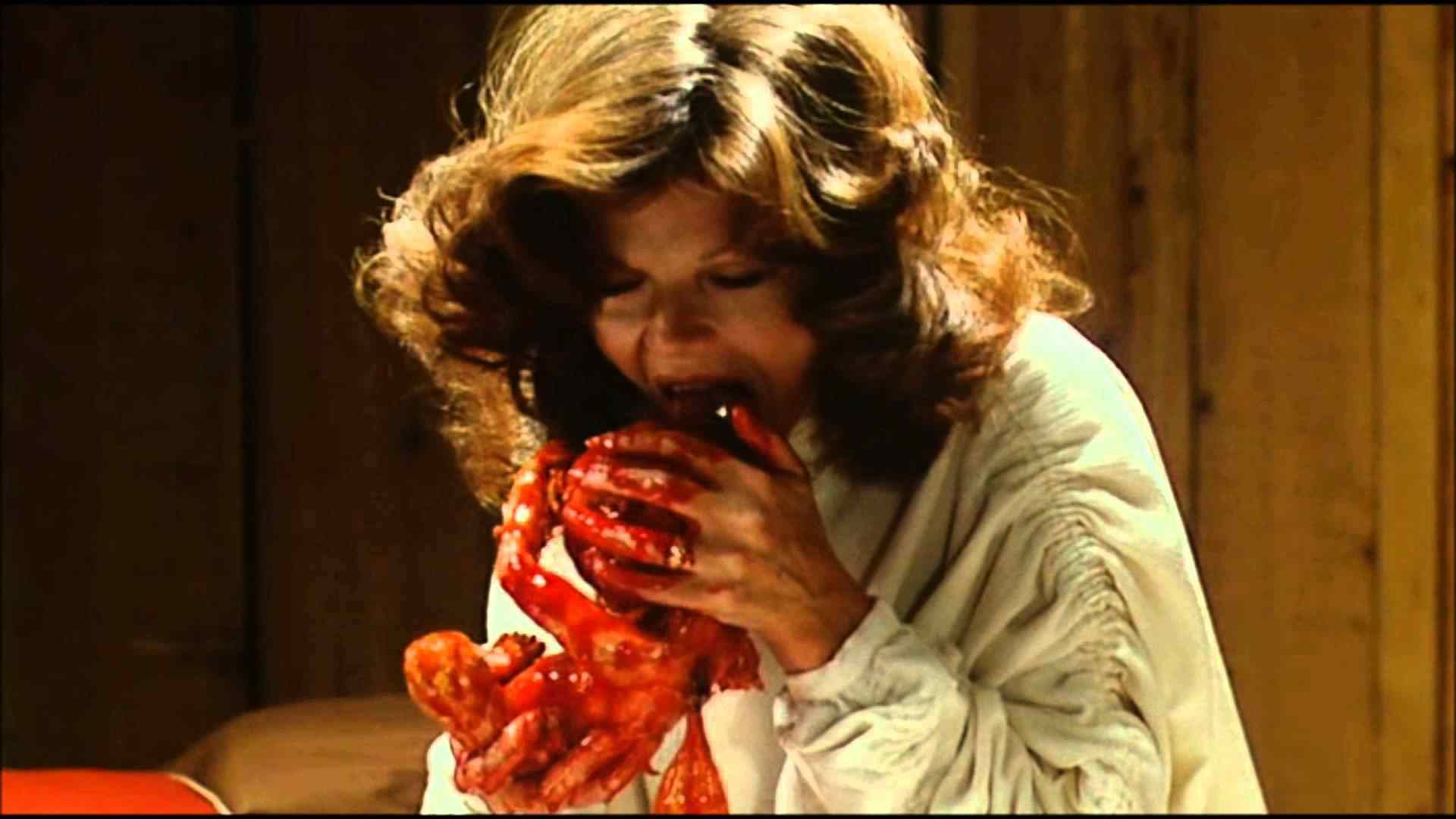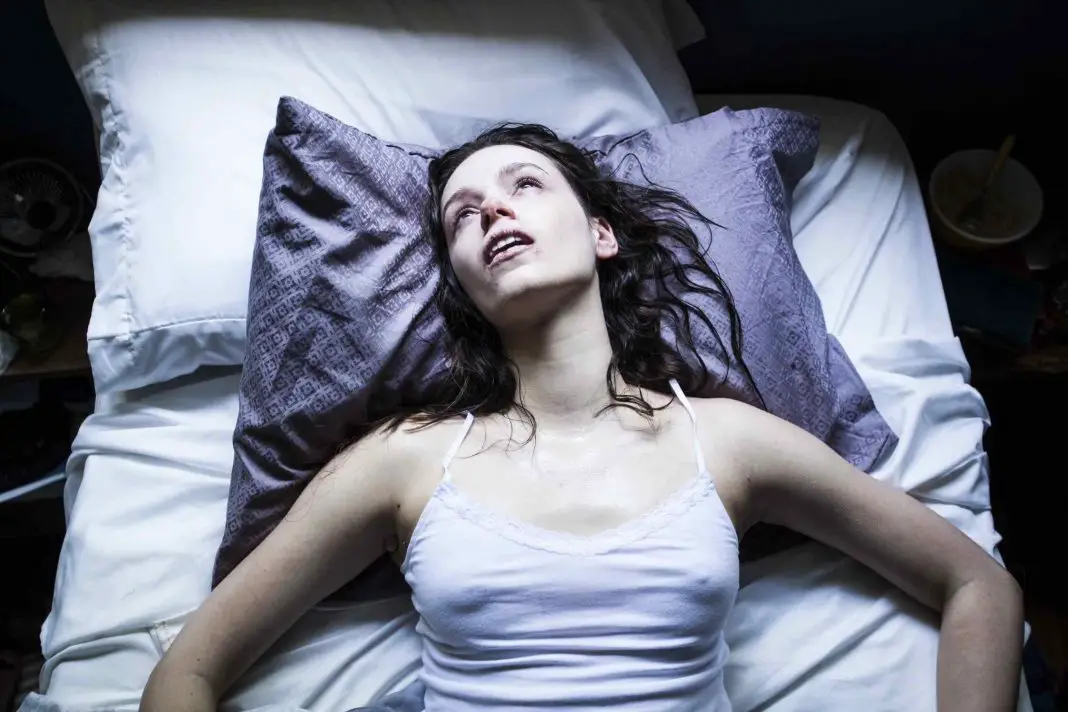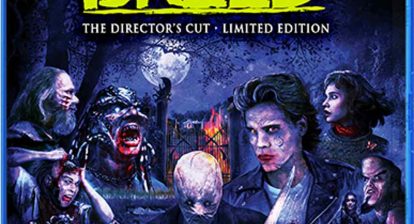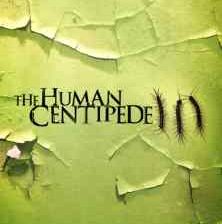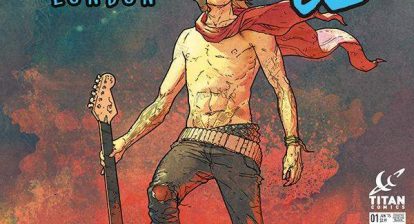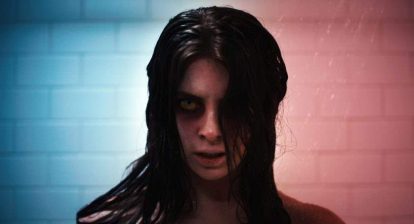David Cronenberg is one of the best directors that the horror genre has ever known. He burst onto the scene with Shivers, which was made for very little money. This was a statement against a conservative climate and was very much about and a product of a furthering mentality of sexual revolution. Sex is a major theme in most of Cronenberg’s films, which shouldn’t come as any surprise. All of Cronenberg’s movies are about the body, even the ones that generally aren’t considered as a part of his body horror output.
It can be surprising at first to see that he has gotten so much flack, as a director, for his female characters when his films include such strong elements of sexual liberation, but they do. And these criticisms, in places, are completely justified. With Shivers, the characters were fairly underdeveloped so it was tough to make a case one way or the other, but with Rabid, the characters are slightly more developed and the reactions have been somewhat mixed.
Some people see Rabid as being somewhat empowering, as the character—who essentially boils down to a Cronenbergian version of a vampire—is essentially causing a sexual revolution with everyone that she turns. It would make sense to see the film this way, but it’s not really told from her perspective. Her boyfriend is much more in the spotlight once the action starts and the outbreak begins.
The movie, though, that would probably draw the most attention for a negative portrayal of female characters is The Brood. And in a lot of ways, as great as it is, the criticism makes sense. The Brood was written immediately following Cronenberg’s divorce and is inherently about a custody battle, though it is still very much a piece of body horror. It’s about a man trying to keep his daughter safe from her mother, who is being kept in an intensive and experimental new kind of therapy, because he believes her to be abusing their child. From a story perspective, the character is not wrong in much of what he does. He sees that the mother has been abusing the child and he tries to do whatever he can to protect her. The mother then also verbalizes that she would rather see the child dead than see him get full custody.Related: Script to Pieces: The Videodrome Remake
It’s only on a larger level that it really becomes problematic, when this is clearly a man writing about his ex-wife. Not necessarily demonizing the gender, as there are female characters in the film who are not vengeful and murderous, but still portraying this woman as so harmful—if not outright malicious because she’s never fully aware of what she’s doing—that he actually has to kill her in order to save his daughter’s life. There are certainly some issues there. The portrayal of this woman as demonizing and somewhat devaluing is perfectly justified, but at least we can take a small comfort in knowing that this was not how the custody battle played out in real life.
Dead Ringers, conversely, is about two gynecologists who sleep with and take advantage of their female patients, so on a surface level, it is very easy to write the entire film off as sexist. But Dead Ringers is a study of these two men. They’re not really supposed to be the heroes of the piece, even the “good” brother. Cronenberg does not make much of an attempt to justify their behavior and in some ways, he even tries to do the opposite. He shows you two guys who are so terrible, but forces you to feel something for them in the end, even though you don’t want to. It’s not a sexist portrayal because Cronenberg doesn’t pass what they’re doing to their patients as something that is okay. Far from it, in fact.
Most people, hopefully, have acknowledged that Cronenberg got better at writing and handling female characters throughout the years. Sarah, in The Dead Zone, is married and has a child when Johnny comes back into her life. He’s the love of her life, but believing he would never wake from his coma has forced her to move on. When she comes back to have a brief affair and sleep with him—which they never got to do while they were a couple—that is entirely her decision. Johnny doesn’t pressure it, he doesn’t even really expect it, but he doesn’t fight it either. It is also her decision to tell him that it was only once and that it will never happen again, which is also a decision he respects without argument, something that male characters in movies almost never do in that situation.
Sarah isn’t in The Dead Zone for that long, but that only speaks to her integrity as a character. She’s not drawn back into a lengthy affair, she doesn’t leave her family for him. She moved on and nothing that happens in the film really changes that.
Then you have one of Cronenberg’s most prominent female characters, Veronica in The Fly. Whereas people simply assumed that Marion Chambers was the heroine in Rabid, people falsely attribute Seth Brundle as the protagonist of The Fly when the true heroine is Veronica. She starts off as, well, a fly on the wall. She watches his work. She videotapes his experiments, but she quickly becomes much more than a voyeur. The Fly is one of Cronenberg’s few romances, especially from his horror period. But Veronica is also a successful and self-made woman who does not let any of the male characters within the piece treat her with any disrespect. She is also adamant in her decision to get an abortion. Even though the reason is that she’s very likely going to give birth to a larvae, it’s an important decision to see covered on the screen.
I think the notion that Cronenberg got better at writing and directing women as he got older and his career matured does not take Videodrome into account. Whereas other films had tried, Videodrome really had its finger on the pulse of modern sexuality. In this feature, the female characters are much more openly sexual than male hero Max Renn, who is surprisingly vanilla for a Cronenberg lead.
The complaints about Rabid and The Brood are justified, even though The Brood is truly an incredible film. That doesn’t mean it doesn’t have a few problems or that those problems should be ignored. As much as it works on a story level, the context makes it somewhat more unsettling. But after that, Cronenberg seemed to have a much easier time writing female characters. They seemed more natural and certainly more full of life than the characters that had come before them. I’m thinking of Sarah and Veronica in particular, who were two of the warmest characters in the director’s entire body of work.
So while Cronenberg does deserve some of the heat for the way women have been portrayed in his early movies in particular, it’s far from universal. This isn’t like H.P. Lovecraft who simultaneously hated and was terrified of women as a whole. It’s probably not something worth attacking the director over now, because many of the women in his films since have been impressive and capable characters. But that doesn’t mean, of course, that there isn’t always room for more.
